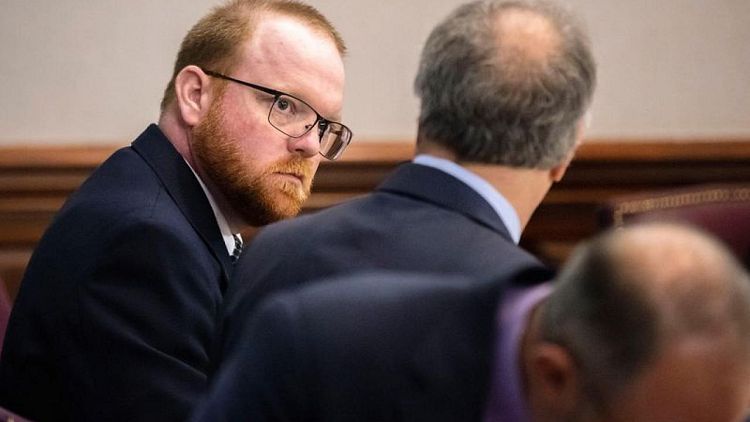By Jonathan Allen
- Travis McMichael, who shot and killed Ahmaud Arbery when the Black man ran through McMichael's mostly white south Georgia neighborhood last year, took the stand on Wednesday in his own defense.
McMichael's decision to testify is a risky legal maneuver as it opens him up to questioning by prosecutors, who have previously said they might ask him about evidence he had "racial animus" against Black people if he takes the stand.
McMichael, his 65-year-old father Gregory McMichael and their neighbor William "Roddie" Bryan, 52, have pleaded not guilty to murder, aggravated assault and false imprisonment.
Defense lawyers have argued the men thought Arbery, 25, might have committed a crime before they chased him and were trying to make a legal citizen's arrest. The younger McMichael shot Arbery in self-defense as Arbery tried to grab McMichael's shotgun, the defense has said. They face life in prison if convicted of murder.
McMichael, 35, began his testimony by answering questions about recent thefts in Satilla Shores, his neighborhood outside the small coastal Georgia city of Brunswick. He said the thefts put residents on edge before Arbery was seen running there on the afternoon of Feb. 23, 2020.
He then spent several minutes answering dozens of questions from one of his lawyers about law-enforcement training he had during nine years he worked as a U.S. Coast Guard mechanic.
Speaking calmly and often turning to address the jurors directly, McMichael said he had arrest powers and was trained on using force and the need for reasonable suspicion of a crime. Although he never used physical force in his Coast Guard duties, he said had been taught that aiming a gun at someone can be used to deescalate a situation.
"When you pull a weapon on someone, from what I've learned in my training, usually that tells people to back off" and comply with orders, he told the jury.
Prosecutors say the defendants had unfairly assumed the worst about a Black man out for a Sunday run, and that none of the defendants were working as law-enforcement officers when they chased Arbery.
In what prosecutor Linda Dunikoski called a "five-minute attack," the three men pursued Arbery in pickup trucks for several minutes before the younger McMichael fired his shotgun three times as Arbery ran toward him and appeared to reach for the weapon.
Earlier, a lawyer for Bryan told a jury that Arbery could have called out to his client for help but did not.
"Arbery has the opportunity to say and speak out, 'Help! Call 911! There's crazy people after me,'" Gough told the jury. "That doesn't happen."
Bryan recorded cellphone video of Arbery being killed by Travis McMichael. The video caused outrage when it was published more than two months after the shooting.
